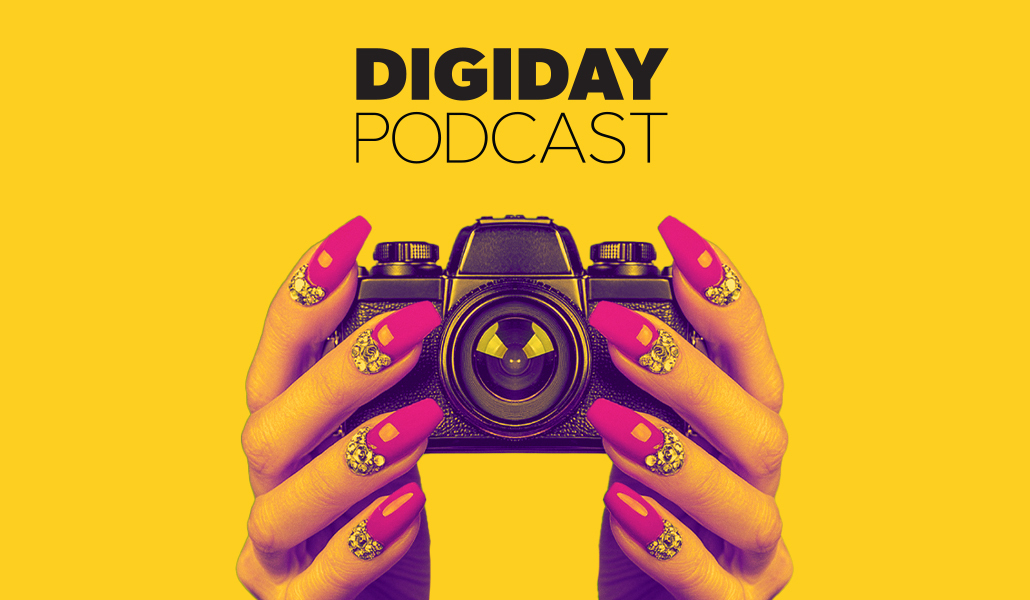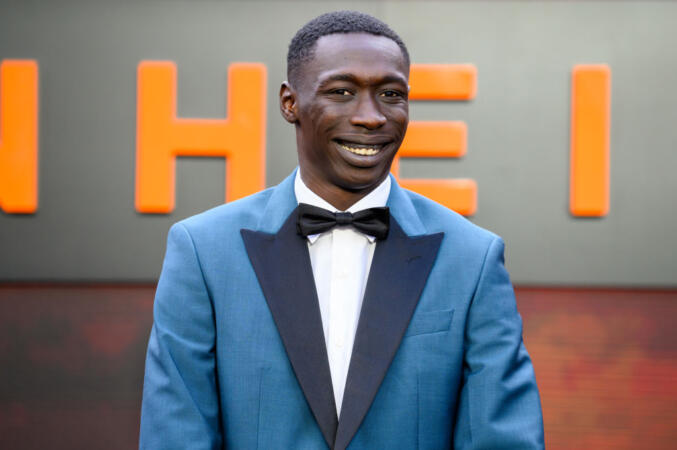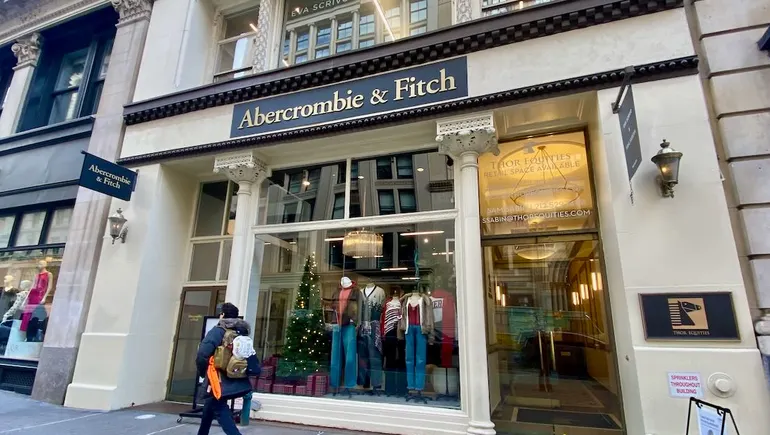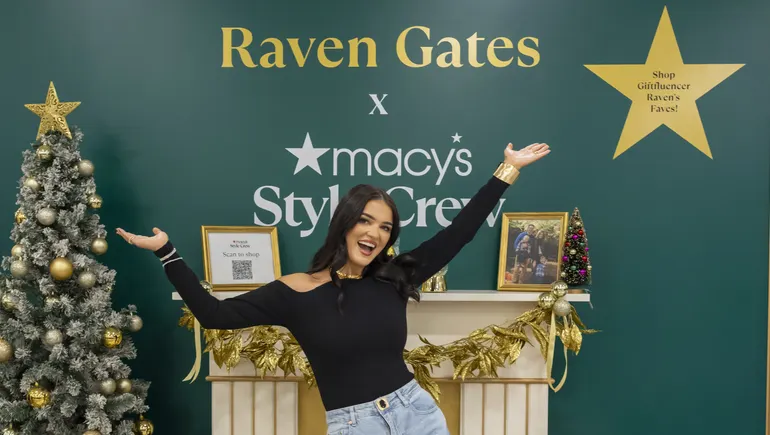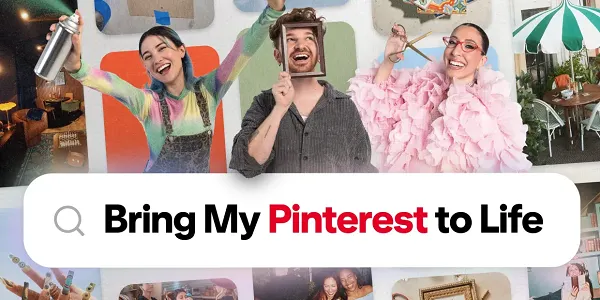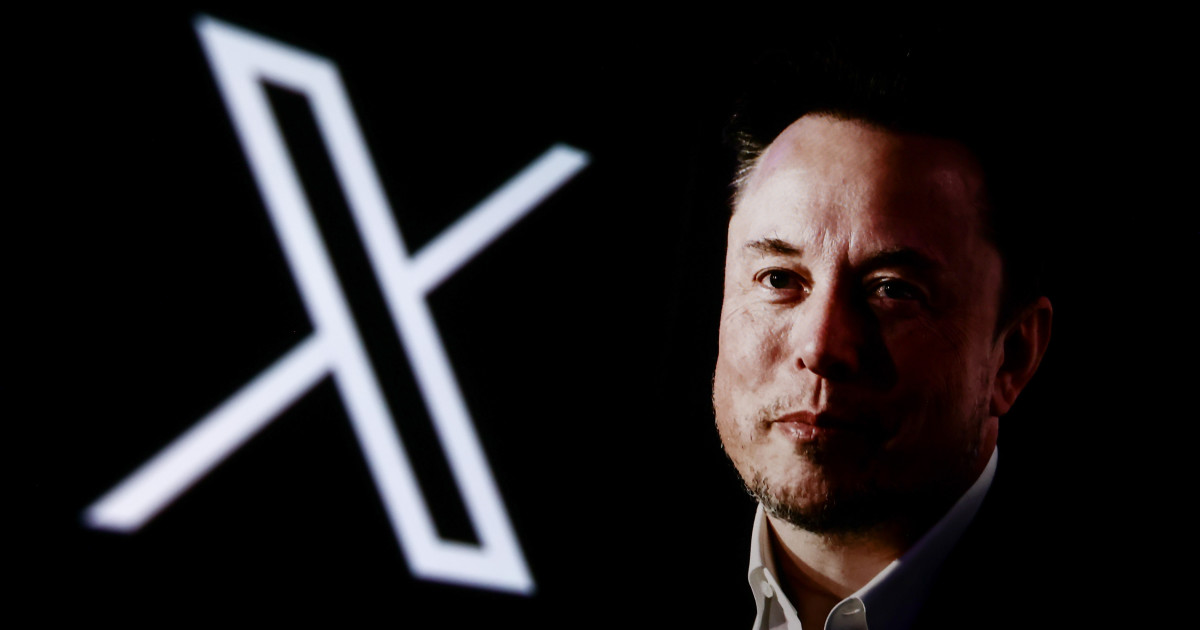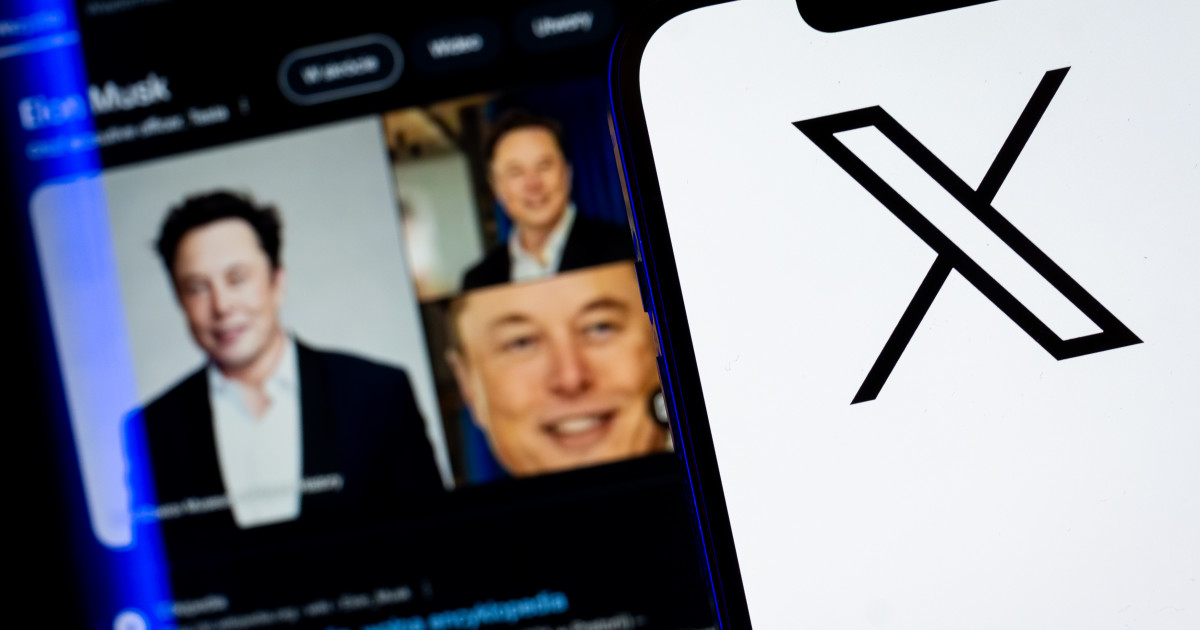#creator-economy
#creator-economy
[ follow ]
#influencer-marketing #creator-payouts #monetization #ai-generated-content #tiktok #gen-z #substack #e-commerce
fromDigiday
1 day agoIn the shadow of Khaby Lame's deal, marketers face hard questions about influence and value
Anyone in marketing gawking at the near-billion price tag attached to TikTok creator Khaby Lame and his deal with Rich Sparkle Holdings isn't really looking at innovation. They're witnessing faith. Faith in what this industry has collectively agreed to let numbers represent. Because that $975 million valuation doesn't seem to be rooted in the nuts and bolts of Lame's company Step Distinctive Limited's financials so much as the gravitational pull of his audience.
Marketing
fromForbes
3 days agoShould Creators Be CEOs? Lessons From One Of YouTube's Oldest Brands
For years, the creator economy has rewarded founders who built audiences and companies simultaneously, serving as talent, brand, strategist and executive all at once. But as teams grow, revenue diversifies and operational complexity increases, that model is increasingly under pressure. One of the clearest examples comes from Smosh, one of YouTube's longest-standing creator businesses. Nearly two decades after its founding, Smosh has survived multiple platform evolutions, monetization resets and cultural changes by intentionally separating creative leadership from executive control.
Startup companies
fromComplex
4 days agoAtlas Artists Backs Launch of Val Segal's ELLO
Segal developed ELLO over seven years, drawing from his background operating a licensed YouTube Multi-Channel Network. The result is a hybrid platform that merges media publishing with secure messaging, eliminating reliance on social algorithms or third-party dashboards. ELLO supports video, audio, livestreaming, and digital publishing within a unified interface. For legacy media brands, the platform enables mobile-native magazine publishing-eschewing PDFs in favor of scrollable, interactive formats optimized for smartphone consumption.
Startup companies
fromTechCrunch
6 days agoApple tells Patreon to move creators to in-app purchase for subscriptions by November | TechCrunch
What Patreon is referring to is the mandate Apple announced in 2024 around subscription billing changes. It said that Patreon must move all its creators to subscription billing using Apple's in-app purchase system by November 2025 or else Patreon would risk removal from the App Store. Apple made this decision because Patreon was managing the billing for some percentage of creators' subscriptions, and the tech giant saw that as skirting its App Store commission structure.
Apple
fromDigiday
1 week agoFuture of TV Briefing: The creator's economy's 'very loud, dirty little secret' of brands' late, delayed payments
"Net-30 is still the most common, but it's definitely extending," said one talent agency executive. "I'm seeing a lot more 60, 45[-day payment windows], or 30 days from the end of the month [as opposed to from the date the campaign went live]. I've occasionally seen 90 and 180, but that's been a little rare. But it's extending a lot."
Social media marketing
fromTheGrio
1 week agoTikTok king Khaby Lame inks $900M deal to revolutionize content creator deals
Despite selling Step Distinctive Limited to Rich Sparkle, Lame will remain as the controlling shareholder of the company. "This is not just an equity acquisition, but a revolution in the global content e-commerce model," Rich Sparkle said in a statement. The content creator also signed on for an AI likeness of himself to take shape, allowing more of his multilingual content to be shared on the global stage.
Business
fromBusiness Insider
1 week agoContent creators share the 2-step process anyone can use to start making money online
Michela Allocca, founder of the personal finance brand Break Your Budget, got started with just her iPhone and an Instagram account. She had a friend take pictures of her around Boston, where she was living and working at the time, "and I would literally post a picture of myself and write a long caption about three steps to start investing," she told Business Insider.
Online marketing
Social media marketing
fromBuffer: All-you-need social media toolkit for small businesses
1 week agoThe 4 Forces Shaping Social Media in 2026 (and What They Mean for Creators)
Creators seek greater ownership while audiences increasingly withhold trust and attention as AI-driven content raises credibility challenges.
Social media marketing
fromDigiday
2 weeks agoNot all creators are the same: How the creator economy breaks down by business model
Content creators form distinct business types and tiers with different economics, revenue models, and audience relationships, reshaping media economics and brand partnership strategies.
fromFortune
2 weeks agoThe creator economy may be bigger than we think, and taxing side hustles will be a growing issue as an OnlyFans 'sin tax' is debated | Fortune
In a Financial Times op-ed late last month, he pointed to a major milestone in the creator economy: an analysis from WPP Media indicated that creator-generated content would fetch the same share of global ad revenue as the radio and newspaper industries would in 2025. "Advertising revenues are not flowing to traditional platforms," Donovan wrote. "To get a message across in the modern world, you need to find a 15-year-old with a smartphone and a nice set of dance moves."
Business
fromBenzinga
2 weeks agoElon Musk's X Is Offering $1 Million For The Best Article - And It's A Big Bet On Long-Form Content - Alphabet (NASDAQ:GOOG), Alphabet (NASDAQ:GOOGL)
According to XCreators, the initiative is designed to encourage creators to produce high-quality, original content that sparks conversation, breaks news and shapes culture. The winning article must be original, a minimum of 1,000 words and will be primarily judged based on Verified Home Timeline impressions. The official announcement states that content that violates X's policies or is hateful, fraudulent, or manipulative will not be taken into consideration, and that only users in the United States are eligible.
Social media marketing
US politics
fromInc
2 weeks agoThere's a Proposed Bill of Rights For Influencers. Here's What It Means for Creators and Those Who Hire Them
A proposed Creator Bill of Rights would require platforms to disclose earnings, publish AI policies, and improve creator support, aiming to stabilize content creation careers.
fromWhat's Trending
2 weeks agoCreator Bill of Rights Introduced in Congress to Protect Digital Workers
The resolution, known as the Creator Bill of Rights, expresses the sense of the House of Representatives that creators and digital workers represent "a distinct and growing class of small businesses and independent economic contributors" who deserve fair treatment, transparency, and economic opportunity in a platform-driven economy. The creator economy is currently valued at $250 billion globally and is expected to reach $480 billion by 2027, according to figures cited in the press release announcing the resolution.
US politics
fromVariety
2 weeks agoWonder Project Leans Into Social Media Creators to Drive Viewership and Audience Insights
Wonder Project quietly enlisted a group of eight social media creators last year to help promote shows such as Amazon Prime Video's " House of David " and the upcoming family drama "It's Not Like That." The creators were given broad access to Wonder Project series, including early screeners, set visits, clips and other assets that are ready-made for creators to craft social media posts that help spread the word about the shows.
Television
Venture
fromLondon Business News | Londonlovesbusiness.com
2 weeks agoWhy management matters more than followers in the creator economy - London Business News | Londonlovesbusiness.com
Managing a creator career like a business—through strategic development, revenue diversification, contract negotiation, and operational support—drives sustainable success beyond follower counts.
Digital life
fromBusiness Insider
2 weeks agoA millennial who hit a 7-figure net worth after quitting corporate life to be a content creator explains how to make money online
Authentic, trend-aware personal finance content plus digital products and brand partnerships scaled Break Your Budget into a high-earning creator business.
fromDigiday
3 weeks agoThe case for and against influencer-led Super Bowl ads
At $8 million for a 30-second Super Bowl spot, celebrities are expected to maintain their monopoly on Big Game commercials this year, keeping influencers and creators in the wing for social and experiential campaigns. "It's just viewership demographics. You cast a really wide net of people watching it, and you want as many people as possible to recognize the person you're putting on the screen," said Jerry Hoak, chief creative officer at The Martin Agency.
Marketing
fromReuters Institute for the Study of Journalism
3 weeks agoJournalism, media, and technology trends and predictions 2026
We are still at the early stages of another big shift in technology (Generative AI) which threatens to upend the news industry by offering more efficient ways of accessing and distilling information at scale. At the same time, creators and influencers (humans) are driving a shift towards personality-led news, at the expense of media institutions that can often feel less relevant, less interesting, and less authentic. In 2026 the news media are likely to be further squeezed by these two powerful forces.
Media industry
Venture
fromBusiness Insider
3 weeks agoA Guggenheim heir just raised $50 million to back media and creator startups. Here are 4 areas he's betting on.
A $50 million fund backed by Guggenheim Brothers Media and Abu Dhabi's Ethmar will invest $2M–$5M in 10–15 U.S. media and creator startups, aiming to grow to $75M.
fromSemafor
3 weeks agoInfluencers flock to Dubai for 1 Billion Followers Summit
Even more influencers than usual are flocking to Dubai this weekend for the 1 Billion Followers Summit that will take over the city's financial district, the Museum of the Future, and government hub Emirates Towers. Touted as the world's largest gathering for content creators, the three-day event kicked off Friday with 30,000 attendees expected - including YouTuber MrBeast, Republican figurehead Lara Trump, and Dubai resident and former soccer star Rio Ferdinand.
World news
Online marketing
fromTheWrap
3 weeks ago8 Creator Predictions for 2026: Platform Diversification, Bigger Deals and Hollywood, Baby
The creator economy is rapidly outpacing traditional media, attracting growing ad dollars, driving platform diversification, AI-driven tools, larger brand deals, and creator-led Hollywood partnerships.
fromBuffer: All-you-need social media toolkit for small businesses
2 years agoWe Checked In On Our Social Media Predictions for 2025 - Here's How They Panned Out
At the start of the year, we asked 11 experts to share their social media predictions for 2025. They pointed to big shifts - world-building, private communities, AI in everything and everywhere, LinkedIn's rise, and a creator economy moving toward more sustainable businesses. Now that the year is behind us, it's a good moment to pause and check the tape. Some predictions held up almost perfectly. Others played out more slowly or looked different than expected.
Social media marketing
fromFast Company
3 weeks agoCES 2026: Entertainment leaders talk about AI, creators, and innovative tech
The world's largest tech showcase does not come without theatrics. Innovations and gadgets like a lollipop that sings to you as you consume it, a laundry-folding robot, and a "smart" LEGO brick have stolen the spotlight so far at CES 2026. But underscoring this year's programming is a strong focus on an industry that relies on a similar theatrical flair: entertainment.
Film
fromDeadline
3 weeks agoCAA Signs Scalable, Creator Economy-Focused Media Company Of Kaya Yurieff & Jasmine Enberg
EXCLUSIVE: CAA has signed Scalable, a newly launched, female-led media company dedicated to covering one of the fastest-growing sectors in media and technology: the creator economy. The agency will work with Scalable across opportunities in media, partnerships, live events, and brand extensions as they continue to expand their footprint. Scalable is founded by longtime collaborators Kaya Yurieff and Jasmine Enberg, who have chronicled the creator economy, social media, and the broader tech landscape for more than a decade,
Media industry
fromBelleville News-Democrat
1 month agoElon Musk quietly tests bold new payout plan for X creators
Across X and other social channels, creators have begun posting screenshots and testimonials about sharply higher payouts tied to the most recent revenue‑share distribution. Analyzing the screenshots and reports, it's evident that creators are seeing two to three times their previous checks, with some describing the new numbers as "the first time X feels like a real income stream" instead of pocket change.
Social media marketing
fromBiloxi Sun Herald
1 month agoElon Musk quietly tests bold new payout plan for X creators
At the time, I wrote that his reply to an X user, "Ok, let's do it," with a tag to X Head of Product Nikita Bier and a warning to "rigorously enforce no gaming of the system," felt like a line in the sand for how serious X was about paying people who keep its feeds alive. Now, early 2026 payout reports suggest that X is starting to follow through.
Social media marketing
[ Load more ]





